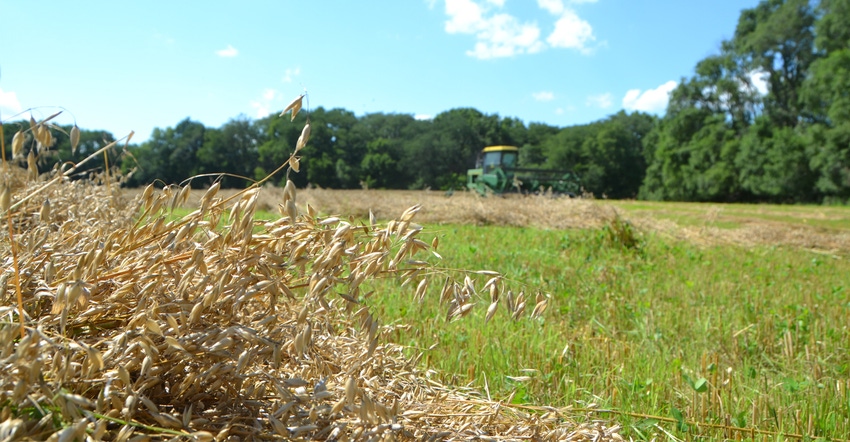October 4, 2017

Practical Farmers of Iowa is seeking to enroll row crop farmers in Iowa, Minnesota or Wisconsin in a small-grain cost-share program that runs for up to two years. The program is intended to support conventional farmers or those transitioning to organic, who add a year of crops like barley, oats, rye, triticale or wheat, followed by planting a summer cover crop or a legume cover crop such as red clover.
Participants are eligible to receive $40 per acre in cost share on up to 80 acres for conventionally raised small grains or acres that are in transition to organic but not yet certified. Organic small grains are not eligible for the cost share, nor are acres receiving cost share for extended rotation practices through the Conservation Stewardship Program or Environmental Quality Incentives Program (practices 328 or 340).
Small grains provide benefits
Participants will be accepted on a rolling basis until the acreage cap is reached. Any small grains harvested for grain in summer 2018 — including winter small grains such as winter wheat or cereal rye, and spring-planted small grains like oats or barley — are eligible for the program. For more information about the cost-share program or to submit a request to enroll your acres, visit practicalfarmers.org/small-grains-cornbelt.
These crops help extend the typical corn-soybean rotation, and can provide a range of benefits to farmers and the environment — from less need for chemical inputs to improved weed control, water quality and soil health, among others.
Program requirements for cost share
Cost-share recipients in this program are required to plant a small-grain crop and harvest it for grain, and they also commit to planting a summer cover crop. When that summer crop is planted, however, is flexible. Participants may elect to seed a legume like clover or alfalfa at the same time the small-grain crop is planted, or they may opt to plant a diverse cover crop mix after the small-grain harvest.
Participants also agree to fill out two surveys: the first in August after small-grain harvest, where farmers will enter their small-grain production details and cost data; and the second survey in the next calendar year, where they will share their production and cost data for the crop that followed the small grain in the rotation.
With this data, PFI will assess the environmental effects of the extended rotation system and create partial budgets for various small grains based on their destination market. Ultimate goal is to supply farmers with financial data to help with decision-making, and provide companies that buy small grains with an estimate of the environmental benefits created by including small grains in a corn-soybean rotation.
Learn about small-grain production, marketing
Cost-share participants are encouraged to join in a monthly shared learning phone call, hosted by PFI, where fellow farmers or industry representatives discuss some aspect of small-grain production or marketing. Half of the call time is reserved for farmers to ask questions and discuss challenges and successes with each other.
Additional education on growing small grains will be available at conferences focusing on small grains, organized by Practical Farmers, planned for 2018 and 2019. In August, a small-grain conference was held in Ames, Iowa. Future conferences will be held in Minnesota and Wisconsin.
Results of PFI’s analysis of farmer data and announcements about upcoming small-grain events will be available at practicalfarmers.org. Practical Farmers’ small-grain cost-share program, shared learning calls and small-grain conferences are made possible by funding from national and state Natural Resources Conservation Service’s Conservation Innovation Grants.
PFI strengthens farms and communities through farmer-led research and information sharing. Values include welcoming everyone; creativity, collaboration and community; viable farms now and for future generations; and stewardship and ecology. Founded in 1985, farmers in PFI’s network raise corn, soybeans, livestock, hay, fruits and vegetables and more.
About the Author(s)
You May Also Like






